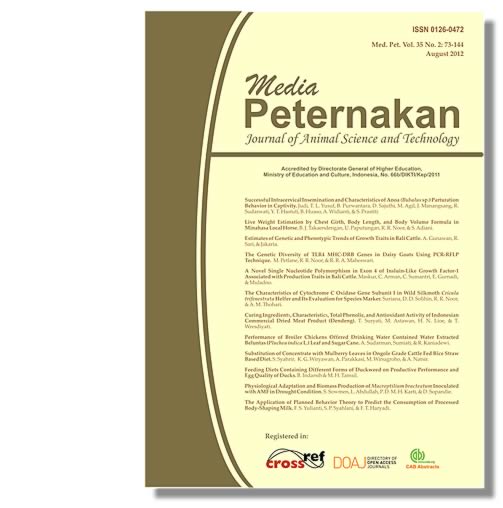Feeding Diets Containing Different Forms of Duckweed on Productive Performance and Egg Quality of Ducks
Abstract
The present experiment was undertaken to study the feeding effect of diets containing different forms of duckweed for local ducks on their productive performance and egg quality or egg yolk pigmentation. A total of 90 birds of 24 wk old ducks were randomly divided into 18 experimental units of 2.0 x 1.0 m2 of cages. The experiment was assigned in a completely randomized design (3 treatments with 6 replicates, 5 birds each). There were 3 dietary treatments, namely P1= ducks fed a complete diet containing 20 % of dried duckweed and given in the form of dry-mash; P2= a complete diet in P1 but it was offered in wet form (slurry); and P3= ducks were offered basal diet in the form of dry-mash and fresh duckweed was offered separately ad libitum. Diets were formulated to have similar nutritional contents. Feed consumption, feed conversion ratio (FCR), and egg yolk pigmentation were measured. The result of the study showed that these three parameters were affected by the feeding different forms of duckweed. Feeding diet with fresh duckweed brought about the best pigmentation than did the dry one. Fresh duckweed offers a promise as a potential feedstuff for ducks and has a good implication in reducing feed processing cost.



